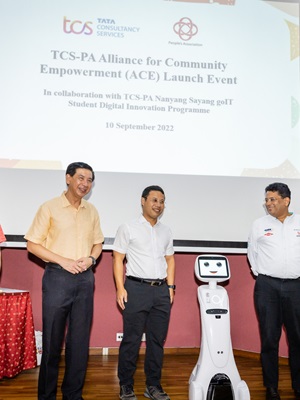Moving forward, with the increased awareness of various disabilities, countries have stepped up their efforts to address diversity and inclusion using legislative action. For instance, in Singapore, frameworks such as the Tripartite Guidelines on Fair Employment Practices have been introduced, safeguarding the rights of disabled individuals. However, these frameworks are merely suggestions for companies to abide by, meaning to say that companies are not obligated to follow these guidelines should they feel that it is incongruous with their business practices.
Thankfully, in a monumental turn of events, Singapore has enhanced and strengthened the existing framework by passing a bill that legally enforces anti discrimination employment laws on January 8, 2025. Some of the key features of the anti discriminatory act include the prohibition of adverse employment decisions (eg hiring, appraisal, dismissal) based on the five protected groups recognised by the law, namely age; nationality; sex, marital status, pregnancy, caregiving responsibilities; race, religion, language; disability and mental health. Under this law, the groups outlined above will receive the following entitlements - having clear grievance procedures within companies, immunity against retaliatory action from companies and penalties including corrective orders and administrative fines should companies be found breaching these legislative rules. With these crucial changes made to legislation, it holistically addresses the systemic issues of discrimination and marginalisation of disabled individuals, allowing society as a whole to work towards inclusion of the disabled community in Singapore.
However, solely relying on legislative action is not enough because while companies can be compliant with the law on the surface level, there are several issues that would continue to persist and pervade the organisation.
Firstly, just because there is legislative action in place does not ignite true change within the organisation due to the presence of implicit biases adopted by the organisation as a whole. As organisations have strongly entrenched corporate cultures shaped by specific patterns of thinking, it would take a massive upheaval of the system to address systemic issues that disabled individuals face on a regular basis. For instance, unconscious and implicit biases may continue to influence decision-making processes, from hiring practices to workplace interactions, regardless of legal frameworks enshrined by the legal system. This is particularly concerning because such biases are deeply embedded and reinforced through the organisation’s culture, making biases more difficult to be identified and addressed through policy compliance alone.
Even if people are conscious about their biases and how it influences their decision-making, the company’s culture might reward individuals for behaviour that seeks to comply with the existing values in place, which makes biases all the more difficult to completely eradicate within the organisation, preventing the organisation from achieving true and meaningful change. Such biases that are so intertwined with the company culture will only continue to shape DEI policies that are exclusionary in nature despite appearing legally compliant on paper. Therefore, genuine inclusion of disabled individuals requires a true cultural shift within organisations, which begins by tackling implicit biases and recognising that DEI policies go beyond mere legal obligation.
Furthermore, while legislative penalties can deter non-compliance, they rarely shift attitudes. Fines or temporary suspensions are one-off punishments that only seek to change the behaviour of companies and do not reinforce the underlying importance of complying with the law mandating fair DEI policies. This results in the lack of creation of true awareness and the failure to change the overall attitude of companies towards implementing inclusive DEI policies, which causes them to flout the rules umpteen times without understanding why they are constantly punished by the law. Thus, companies might treat penalties as routinary expenses instead of creating a catalyst for change.
Ultimately, legislation can set the baseline for change but meaningful inclusion requires a complete transformation in organisational mindset and it starts by committing to challenge implicit biases.
I believe that to catalyse true change within the organisation, companies must adopt a multifaceted and holistic approach in dealing with DEI policies.
Firstly, to propel genuine inclusivity within organisations, companies must train their HR departments to acquire a baseline understanding of disabilities. While it is common for upper management in large corporations to send HR teams for DEI training sessions, these often focus on broad topics such as the current legislation surrounding DEI policies, fair hiring practices and fostering a more inclusive workplace culture.
However, to ensure that HR professionals are well equipped to tackle issues surrounding various disabilities at the workplace, companies need to go beyond these training programmes and engage individuals who specialise in disability inclusion. This is because these individuals cover a baseline understanding of various disabilities - both visible and invisible, which is something that most DEI training programmes do not offer. Additionally, these individuals are usually renowned experts in their fields, allowing them to offer tailored support to HR professionals by teaching these professionals how to identify various disabilities and address them accordingly in the organisation. By getting experts in the field to engage with HR professionals, this closes critical knowledge gaps and allows HR professionals to gain greater insights into the nuances of the various disabilities, allowing them to provide the necessary accommodations that disabled employees require, propelling further inclusion within the workplace.
Additionally, I believe that companies should constantly receive feedback from disabled employees regarding DEI initiatives implemented in the organisation. Indeed, it is ubiquitous for the upper management in huge conglomerates to adopt multiple avenues such as surveys to gather feedback from employees regarding various initiatives in the organisation. Such surveys usually remove any identification markers that can be used to identify employees in the organisation, making it highly anonymised. With the presence of these feedback channels, disabled employees are now empowered to be genuine about their responses without the fear of retaliation from the upper management or worse still, jeopardising their jobs.
This valuable feedback provides the upper management crucial information about the true efficacy of the DEI programmes implemented and hence seek solutions to make improvements and adjustments to the programmes, making disabled employees feel heard and accounted for in the organisation. With such trust established between disabled employees and the upper management, disabled employees will be more willing to participate in employee surveys, providing their suggestions on how to improve DEI initiatives or even be involved in designing DEI policies that are genuinely inclusive. This creates a bidirectional discourse between disabled employees and the upper management, further advancing inclusive DEI policies. Thus, I believe that companies should receive feedback from disabled employees on a regular basis.
All in all, I believe that creating truly inclusive workplaces requires more than just a superficial level of compliance towards DEI initiatives - it demands intentional, informed action. By equipping HR professionals with the relevant knowledge in dealing with the various disabilities and fostering a culture of bidirectional discourse between disabled employees and the upper management, employees like John would not feel excluded anymore but are now empowered to fulfil their ambitions and goals, allowing them to truly thrive and shine at the workplace.
Posted 14/08/2025

















